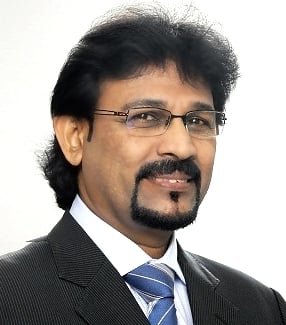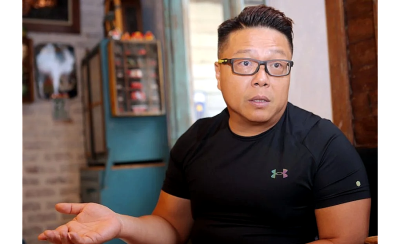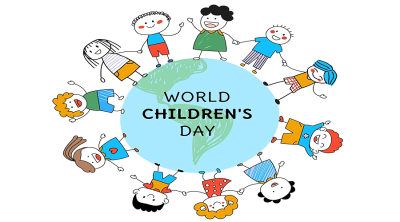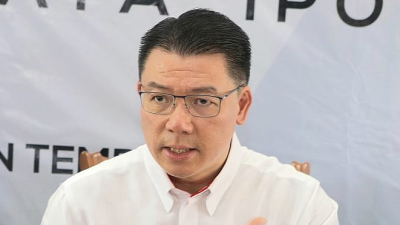
By Ravindran Raman Kutty
The COVID-19 pandemic has paralyzed much human movement, and is of no benefit to anyone especially the B40 category citizens of our country.
More than 750,000 people are unemployed, and the numbers are increasing daily. Our foreign investment is also dipping. FDI in Malaysia registered a lower net inflow of RM2.2 billion as against RM6.4 billion in Q1 2020. All these factors are pointing negatively to our well being, with much focus on the lower income category of Malaysians.
The Malaysian Government has unveiled various programs and packages in aid of those in need – the Economic Stimulus Package worth RM20billion, PRIHATIN package (RM230billion),
Additional PRIHATIN Package (RM10billion), National Economic Recovery Plan (RM35billion) and Kita PRIHATIN Package (RM10billion) to weather the impact of COVID-19.
These are great packages but perhaps the government should also introduce a scheme to encourage every citizen residing in the urban or rural areas to do some gardening, to improve his livelihood or bring greater sustenance value to his home and family.
In December 1974, Tun Abdul Razak launched the "Buku Hijau" ("Green Book"). This program encouraged every citizen to do gardening or farming for a short term, or develop an organized farming unit such as planting of greens, or running a dairy or fish farms for the personal consumption or for the purposes of trade, hence enhancing their household incomes. This applied to everyone regardless of where they lived, be it in the urban or the rural areas..
I can confidently vouch that this was a great program as it helped my family and my neighbors when we were living in an estate. With the help of the estate management, my parents secured a small plot of land nearby our home, and in good time our sweat and toil provided us with fresh and organic vegetables, and additional income during a period when the estate workers' salary was too meager to live on, and with eight children to feed and educate.
Recently the Selangor government introduced The Farmer Entrepreneur Program, created specifically to help farmers by renting out plots of land to work on.
This could also help solve the problem of farmers in the State of Selangor who do not have space (land) to cultivate various crops. 385 hectares of land in part of the Selangor Fruit Valley Plantation have been allocated for the purpose of helping these entrepreneurs. However, the effectiveness and level of which farmers have adopted this offer has yet to be seen.
Agriculture in Malaysia, in terms of food production, is in a neglected state — disorganized and in a disarray. Small- time farmers are at the mercy of the "middlemen".
"Market data indicates that the average age of Malaysian farmers to be 50 years old and the majority are in the B40 group". We have so much land in Malaysia and a small population of 30 over million compared with our Asean neighbors and yet we need to import over RM50 billion in food commodities annually to feed the nation. This situation certainly calls for doubts to arise and questions seeking answers.
Where is our food security? During this COVID-19 pandemic, we are over-reliant on food imports. The last MCO in March 2020 left behind many unclaimed food containers at our ports, thus causing much hardship to our citizens. If we were in a war scenario and food imports were to cease, what would we do?
A practical solution is for our government to reinitiate and reintroduce "Buku Hijau" program. This time, the Local Authorities must respond or attend positively to all citizens who sign up for this program.
Do not hand over the task to some defunct residents associations to endorse or verify the cases. Cut the red tapes and go straight to every applicant and help them to do their farming or gardening. The local authorities should allow the Department of Agriculture (DOA) under the various states to assist, approve and support the budding farmers.
Although helpful, the DOA's assistance or advice to those involved in gardening or farming only comes when asked. Take my case, for instance, as an urban farmer working on a small plot of land, I am learning farming in the most painful way.
I planted about eight types of banana trees on my small plot of land. The first harvest was great; the second harvest was strangely bad.
When I checked with the DOA, I was informed that my banana trees had been affected with the Panama Virus, and to my despair, I had to cut down all the trees. After the banana episode, I planted 50 papaya trees. The trees grew well, but after 9 months, their leaves began to wilt and the trees began dying.
Upon contacting the agriculture officers from Shah Alam and Gombak, I was told that my papaya trees had been infected with a "dieback" virus, and again, I lost my trees.
Should there have been the "Buku Hijau" program of which I would definitely have applied for, I may have been able to save my trees and also my hard work with the ready advice and attention provided by the DOA and not be informed of such problems with my crop only after my efforts to contact and ask, to learn that it was too late.
The Ministry of Agriculture should be given a free hand and jurisdiction to manage, advise and consult the farmers whose land can be broken up into one, two, five or even 10 acre lots and strictly used for food crops only, depending on the size of the land.
If the government is sincere about growing enough food to feed the nation, and reducing the annual RM50 billion food import bill, it should be actively playing a supporting role through Agrobank, MARDI and FAMA, providing back-up services to these millennials. Agrobank can assist on the financial side by disbursing loans; MARDI can guide on the training of farmers; and FAMA can advise on the logistics of marketing to give farmers better returns for their produce. Mind you, these are all initiatives that surfaced from the "Buku Hijau" program.
We need "Buku Hijau" to help and sustain the people who are facing a hard time in their daily lives. We need the scheme to be re-launched as soon as possible, thus helping the poor and needy to work within their homes. Through their initiatives, they will not only harvest organic vegetables, but also become healthy.
If fertilizers, seeds, gardening and farming tools are provided to budding farmers, and technical aid be given to farmers in the form of tractors and ploughing machines, we will see a booming urban and rural community who will not only look good but be productive, too.
Now with the availability of modern technology, the "Buku Hijau" program can be boosted to even greater heights. It is best to encourage gardening and farming, as we can also divert the stress of NO WORK, NO OUTING into something beneficial to any individual or our country.
(Ravindran Raman Kutty is an active social worker.)
ADVERTISEMENT
ADVERTISEMENT


































